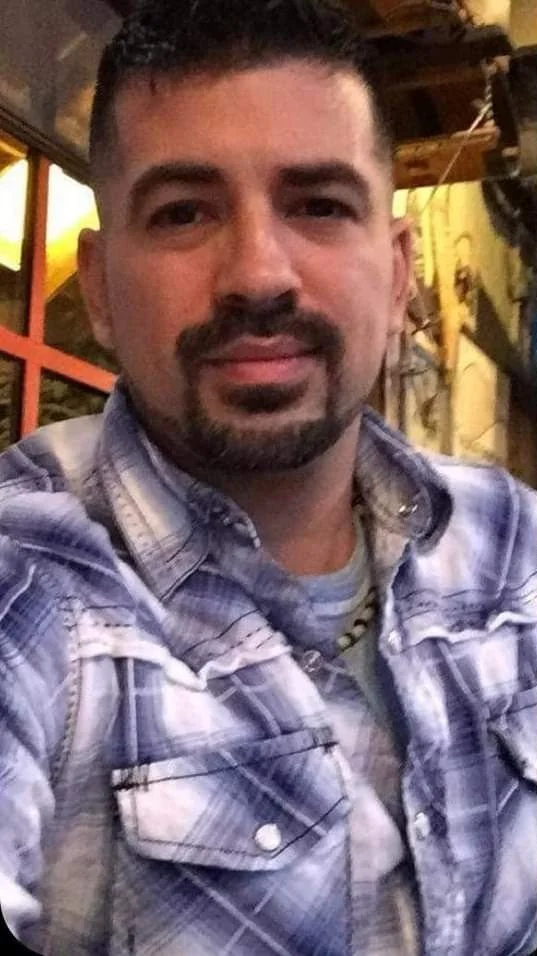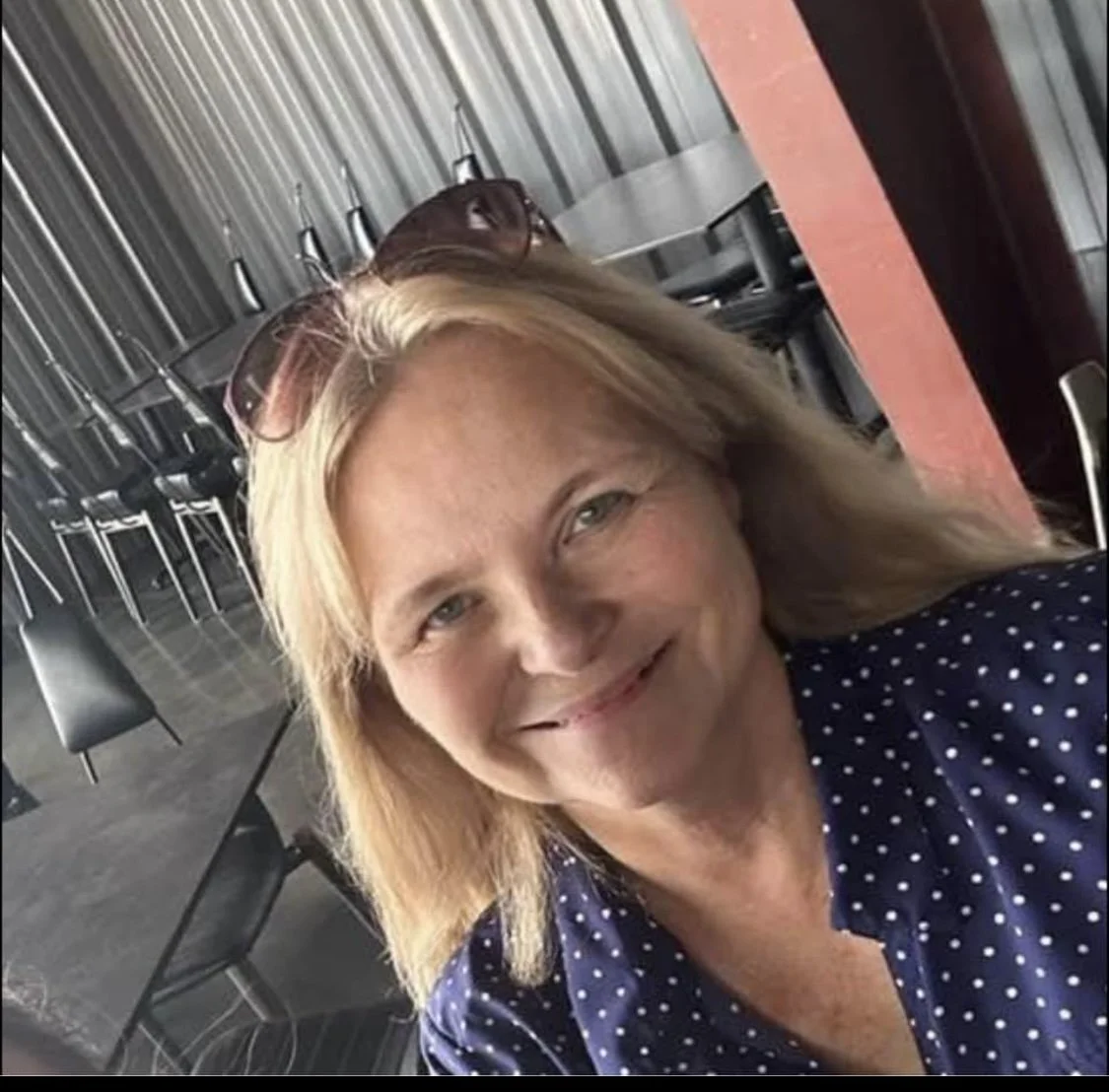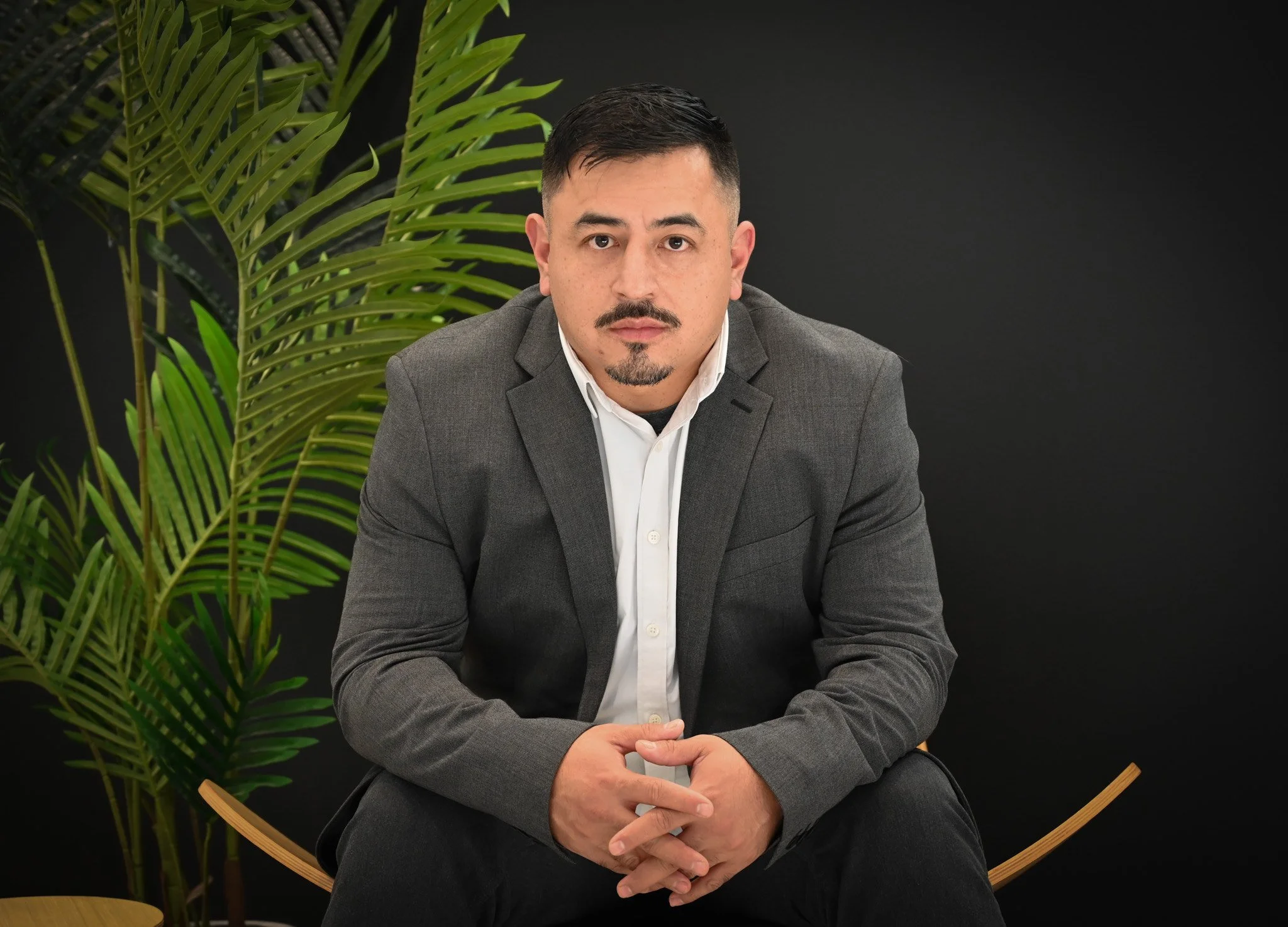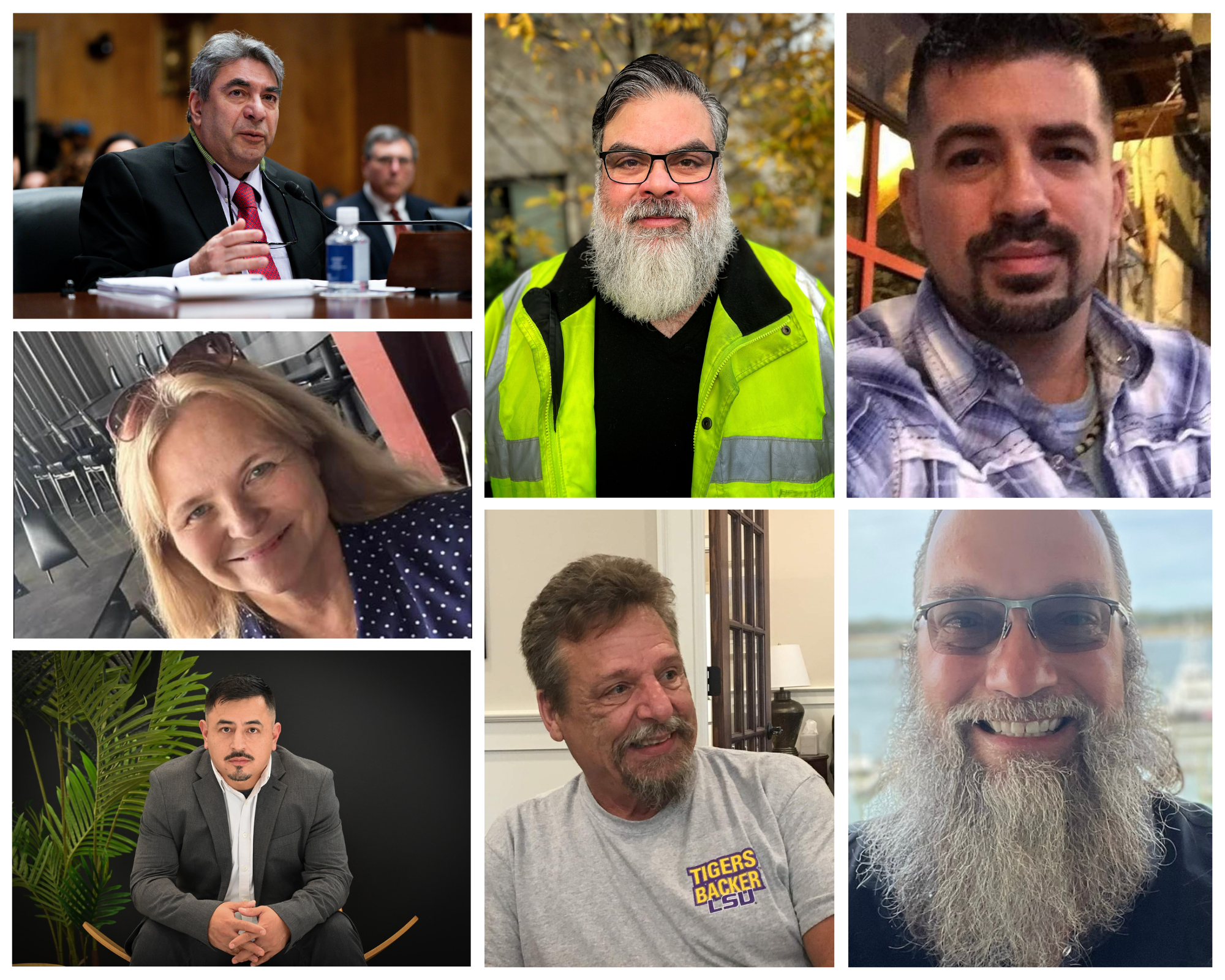John Barnett, Sam Salehpour, Roy Irvin, Joshua Dean, Sam Mohawk, Cynthia Kitchens and Santiago Paredes
2024 BLUEPRINT NORTH AMERICA
WHISTLEBLOWING PRIZE
Multiple Boeing whistleblowers exposed the collapse of quality control in a safety critical industry, with repercussions that will be felt for years to come
The past few years have seen a spectacular downfall for Boeing, the world’s largest commercial aerospace manufacturer and a nationally important defence contractor for the US.
In 2024, the company’s aircraft have been the subject of some terrifying in-air incidents. In January, a window and a chunk of fuselage from a 737 MAX 9 plane operated by Alaska Airlines blew out in mid-air after taking off from Portland. Three of the 177 passengers on board suffered injuries as an uncontrolled decompression sucked personal items – phones, keys, clothing - out of the aircraft.
The National Transport Safety Board, the US flight safety regulator, determined that there had been a mechanical fault - four vital bolts had not been installed in a door panel produced by Boeing supplier, and former subsidiary, Spirit Aerosystems, suggesting a hurried repair. This was not the only major issue to affect Boeing aircraft in early 2024. Only a few months after the Alaska Airlines incident, an engine covering, or cowling, fell off a Southwest Airlines flight shortly after take-off from Denver, striking the plane’s wing flap as it did so.
These malfunctions themselves came only five years after two 737 MAX 8 planes crashed in Ethiopia and Indonesia, causing the deaths of 350 people. At the time, those failures, which caused Boeing planes to be grounded worldwide for over a year, were attributed to design and software failures. But the testimony of multiple whistleblowers from inside the company, speaking both anonymously and in public, suggests that Boeing has been afflicted with systematic production and build quality issues for years, seriously compromising the safety of air passengers worldwide.
Boeing’s failures have led to a number of regulatory and criminal investigations. The Senate Permanent Subcommittee on Investigations has taken evidence from a number of whistleblowers, who have demonstrated that the problems at Boeing were felt across the board, and were not unique to production of the 737 MAX. In September 2024 the Subcommittee heard that, according to a recent internal survey, more than half of Boeing employees agreed that “scheduling pressures” had led to compromises on product quality.
The US Department of Justice has also launched a criminal investigation into the Alaska Airlines incident. An earlier US criminal case, relating to Boeing misleading US air safety regulators ahead of the Ethiopian and Indonesian crashes, was reopened and resulted in Boeing pleading guilty to conspiring to defrauding US regulators in July 2024.
As part of the agreement, Boeing agreed to pay a $243.6m fine and invest nearly half a billion dollars in its safety and compliance procedures. Families of the victims of the Ethiopian and Indonesian crashes have opposed the settlement, which they say allows the company and its executives to evade accountability.US District Judge Reed O'Connor, who is currently considering a legal petition from the families to reopen the agreement, told them that the 737 MAX crashes represented "the deadliest corporate crime in US history."
In March 2024, the reopened criminal case led to the departure of chief executive Dave Calhoun and head of commercial planes Stan Deal. Notwithstanding the changes at the top, the company is experiencing a seemingly intractable series of crises. In October 2024, the company announced a quarterly loss of 6 billion dollars – the second worst result in its history. In the meantime, aircraft production at Boeing has practically ground to a halt. In the wake of news about planned redundancies amounting to around a tenth of the company’s global workforce, 33,000 Boeing employees went on strike for nearly two months in autumn 2024, costing the company an estimated 100 million USD every day in lost revenue.
The long-term outlook for Boeing is uncertain. The company was obliged to seek a USD 21.1 billion injection of capital in late 2024 in order to shore up its credit rating.
The revelations about Boeing are critical for everyone who travels by air. The public owes all the whistleblowers - John Barnett, Sam Salehpour, Roy Irvin, Joshua Dean, Sam Mohawk, Cynthia Kitchens and Santiago Paredes, along with the many other Boeing whistleblowers whose names are not known publicly, a debt of gratitude. Together, they share the Blueprint North America Whistleblowing Prize for 2024.
John Barnett
In March 2024, John Barnett’s death made headlines around the world. Barnett had worked at Boeing for more than 30 years before his retirement in 2017 on health grounds.
From 2010, Barnett’s work had brought him into close contact with the development of the 787 Dreamliner, when he was appointed as a quality manager at Boeing’s North Charleston plant in South Carolina. In 2017, he made a series of disclosures about sub-standard manufacturing practices with real safety implications.
Barnett reported that a push to increase production had led to procedures for tracking components not being complied with. Defective parts were being fitted to planes on the production line, including some that had been retrieved from reject bins. Tests had shown that up to 1 in 4 on-board emergency oxygen systems - which would be vital in an emergency - would not deploy properly.
Barnett’s attempts to report these problems internally fell on deaf ears. In 2017 the Federal Aviation Administration (FAA) upheld some of Barnett’s complaints, particularly about the tracking of dysfunctional components.
John Barnett retired in 2017, after being diagnosed with PTSD and upon his doctors' strong recommendation to leave the stress associated with the retaliation he was enduring. He immediately filed his AIR-21 complaint, challenging the retaliation he faced against Boeing as a whistleblower. It was this long-running suit that dominated his final days.
According to accounts of his testimony, Barnett was extremely persuasive and able to recall dates and details without referral to documents. John Barnett was due to give a further deposition when he was found dead, in what police said was a self-inflicted gunshot wound.
Sam Salehpour
In the wake of the Alaska Airlines blow-out in 2024, engineer Sam Salehpour came forward with similar allegations about the manufacturing of the Boeing 777 and 787.
In a report sent to the Federal Aviation Authority (FAA) in January 2024, Salehpour outlined the shortcuts he had seen being taken in production of the 787 Dreamliner, which cut costs but would shorten the working life of the aircraft. Specific concerns included components not being joined together securely enough and drilling debris not being removed.
After expressing concerns to management, Sam Salehpour was transferred to production of the 777, where he witnessed similar issues. Giving evidence to the Senate Permanent Subcommittee on Investigations on 17 April 2024, Salehpour revealed the consequences he had faced from his superiors - being threatened with dismissal and even physical violence.
Salehpour told the Committee that his were not minor concerns. In his opinion, Boeing “is taking manufacturing shortcuts on the 787 programme that could significantly reduce the airplane's safety and the life cycle… They are putting out defective airplanes."
Roy Irvin
Roy Irvin worked as a quality investigator for Boeing in South Carolina, alongside John Barnett, between 2011 and 2017. After many years of having his internal reports ignored, Irvin made a report to Congress about his concerns in April 2024 and came forward publicly a month later.
Speaking to the New York Post, Irvin said that what he had seen on the 787 production line was absolutely safety-critical:
“Missing safety devices on hardware or un-tightened hardware means that you’re not going to be able to control the airplane if those fail.”
Perhaps just as concerning was what Irvin had to say about the internal culture at Boeing. Leaders in the quality division, where Irvin worked, would discourage investigators from pursuing concerns or putting anything down in writing. Irvin’s persistence had led to him being called “insubordinate.”
Roy Irvin had given testimony in John Barnett’s retaliation lawsuit just before his untimely passing. Speaking to CBS in Austin a few months later, Irvin said that his friend was “a lighthouse for the whistleblower activity… He was probably the first one of the pioneers."
Joshua Dean
Spirit AeroSystems is a manufacturer of fuselages and other aircraft components and a major supplier for Boeing, which had been spun off from the main company in 2005. The company was formally re-acquired by Boeing in summer 2024.
Joshua Dean worked as a quality auditor for Spirit in Kansas until 2023, when he was fired. In response, Dean had filed a complaint with the Department of Labour alleging that his dismissal was in retaliation for his whistleblowing and reported his concerns about production of fuselages for the 737 MAX to the FAA.
Dean reported seeing mechanics drilling holes and fitting tail fins to the wrong parts of the fuselage. These problems had been ignored by leadership at Spirit. In addition to the FAA compliant, Dean provided testimony to a lawsuit brought by Spirit shareholders against the company in December 2023.
Joshua Dean had been in good physical health when he was admitted to hospital with trouble breathing. After contracting pneumonia and MRSA, he passed away in May 2024, aged just 45.
Sam Mohawk
Sam Mohawk was still working for Boeing as a quality assurance inspector, when his whistleblowing was announced to the world in dramatic fashion. Connecticut Senator Richard Blumenthal described Mohawk’s June 2024 report to the Occupational Safety and Health Administration (OSHA) in a public statement just a matter of hours before former Boeing CEO Dave Calhoun was due to give evidence to the Senate Permanent Subcommittee on Investigations.
Mohawk still works for Boeing in Renton, Washington, where he is responsible for tracking non-conforming or faulty 737 MAX components that are not supposed to be used in the production of aircraft. His report revealed a systematic disregard for documentation, which had led to rejected components being put into new aircraft. 400 electronic records relating to non-conforming parts had been deleted.
Boeing leadership in Washington were no more receptive to internal reports than their counterparts elsewhere. Mohawk said that he had been told by his supervisors not to bring these to the attention of regulators and that he had experienced retaliation for not hiding undocumented components from the FAA. Nevertheless, Mohawk had gone on to make his report to OSHA.
According to Mohawk, the problems with quality control had become worse after the production of the 737 MAX had resumed in 2020. The post-crash grounding of 737 MAX aircraft worldwide had created severe financial problems for Boeing, which were compounded by the Covid lockdowns and their impact on the aviation industry generally.
Cynthia Kitchens
Cynthia Kitchens worked in quality control at Boeing's 787 Dreamliner plant in North Charleston, South Carolina alongside John Barnett and Roy Irvin. Kitchens’ reports provide early confirmation of the problems her colleagues would also report.
Kitchens told regulators in 2011 about problems she saw on Boeing’s production line that were resulting in potential problems with finished aircraft. When Kitchens and other employees made superiors aware of these problems, they were told to ignore them. Then Boeing started to retaliate against Kitchens and harass her.
In 2013, Cynthia Kitchens was diagnosed with cancer and started chemotherapy. Boeing threatened to put her on a "work improvement plan" but could never cite a valid reason for doing so. Kitchens eventually resigned from Boeing in 2016. She has told the media that she believes the negative performance reviews she faced were in retaliation for her pointing out quality control issues:
“It was intimidation... Every time I started finding stuff, I was harassed.”
Cynthia Kitchens then launched a discrimination case against the company, alleging that she had faced a consistent pattern of marginalisation due to her age and sex. Ms Kitchens had to pay Boeing's costs when the case was dismissed.
Santiago Paredes
Air Force veteran Santiago Paredes worked for Spirit AeroSystems in Kansas until summer 2022, where he observed the conditions in which fuselages for the 737 MAX were being manufactured.
In evidence for a lawsuit brought by Spirit shareholders, Paredes suggested that the parts manufactured by Spirit for the 737 MAX invariably went to Boeing with defects and that the problems had got significantly worse after production was accelerated in 2018.
Paredes was nicknamed "Showstopper" at Spirit due to the number of times his identification of quality issues delayed delivery. In particular, he says he found multiple problems with the door plugs, a removable part of the fuselage. Missing bolts could well have been the immediate cause of the botched repair that resulted in the Alaskan Airlines incident in January 2024.
Inspectors, he says, were often put under pressure in order to minimise the issues they identified. In February 2022, a request of this type was put to him in email, which he rejected, replying that it was "unethical." As a result of this, Spirit tried to put Paredes in a position where he would eventually have to leave the company. Paredes filed an ethics complaint, which was upheld, but finally left Spirit in summer that year.
Santiago Paredes came forward publicly in an interview with US broadcaster CBS in May 2024.
"If quality mattered, I would still be at Spirit," he told CBS. "It was very rare for us to look at a job and not find any defects.
"Working at Spirit, I almost grew a fear of flying... Knowing what I know about the 737, it makes me very uncomfortable when I fly on one of them."








